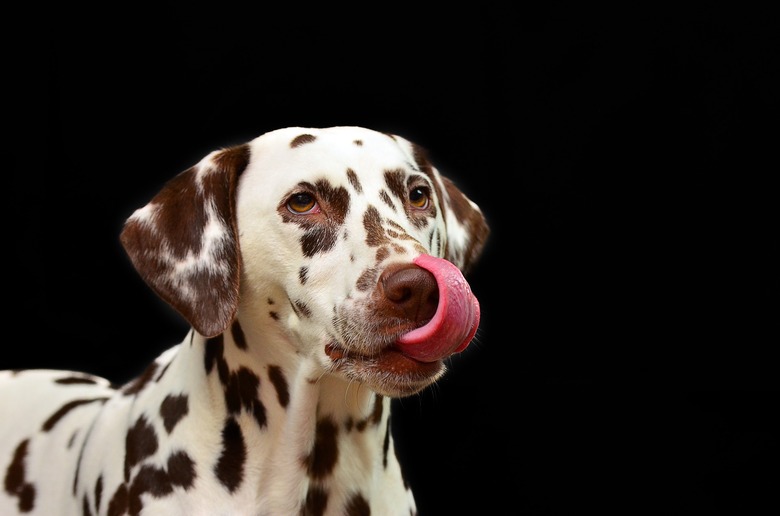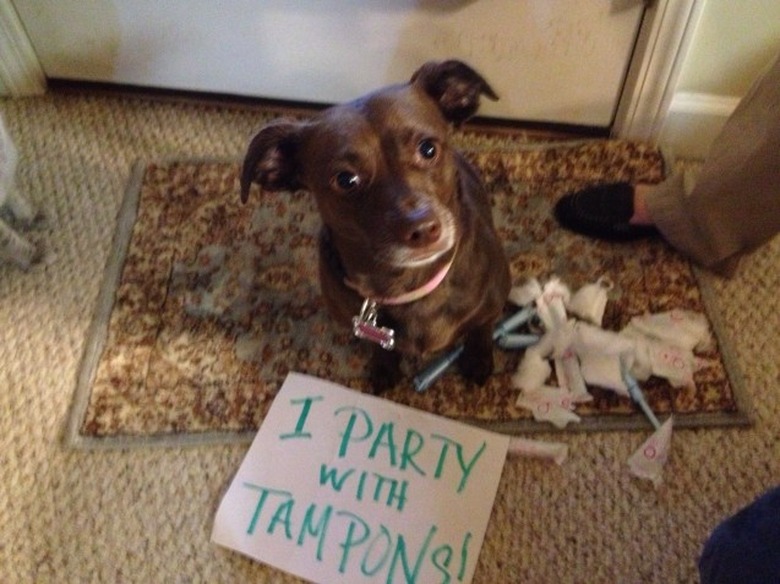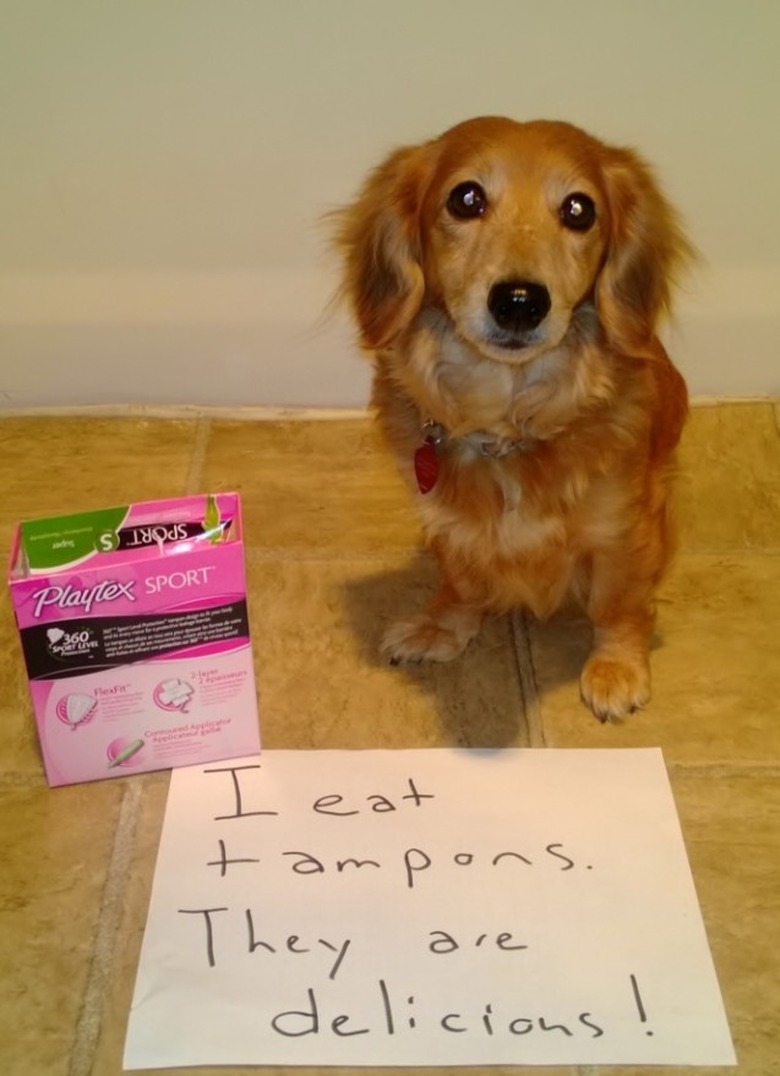Help, My Dog Ate A Tampon! What To Do When Your Dog Eats A Tampon
Ok, it's time to get gross.
If you menstruate or live with someone who does, you know this horrifying fact of life: Dogs are drawn to used tampons and menstrual pads. Specifically, their mouths are drawn to them.
Why do dogs eat tampons?
Why do dogs eat tampons?
You probably already know that dogs are big on sniffing crotches. They do this because they're searching for information — the same reason they sniff other dogs' butts. Our genital and anal areas contain high concentrations of pheromones, which is what dogs are trying to sniff out. These pheromones might smell differently to dogs when humans are menstruating, which is why your dog might seem especially glued to your crotch during that time of the month.
RELATED: Why Do Dogs Eat Poop?
There's a related reason your dog may chomp down on your tampons. Although there is no definite answer as to why dogs eat non-food items, we can make some educated guesses. Melvin Peña at Dogster points out that dogs' consumption of human biowaste is not limited to tampons. Dogs have also been known to get into dirty diapers, used condoms, and any other gross biowaste product that can be put in a trash can.
Peña also notes that a dog's primary sense organs, and the two that they can use from birth, are their nose and their tongue. Smell and taste are two important ways that dogs gather information. And because dogs are both hunters and scavengers, they're naturally attracted to smells of bodily fluids, as well as smells associated with decay. When dogs smell a biowaste product, they likely feel compelled to investigate into it, and they do so with their nose and tongue.
So if you've found your dog consuming any form of human biowaste, it's not necessarily because they love the taste — it's all part of their quest for information.
So if you've found your dog consuming any form of human biowaste, it's not necessarily because they love the taste — it's all part of their quest for information.
What to do when your dog eats a tampon
What to do when your dog eats a tampon
If your dog ingests a tampon, remain calm! First, try to figure out how many tampons or pads your dog ate. If they ate non-used products, save the wrappers for counting purposes. If the products were used, try to estimate how many they may have consumed.
RELATED: Signs of Intestinal Blockage in Dogs
If they only consumed a small amount, your pup might be able to pass these products just fine. It won't be pretty, but it also won't be dangerous to their health.
However, if you suspect your dog has eaten a large amount of any genital-based human product, take them to the vet. Additionally, watch for signs of intestinal blockage:
- Diarrhea
- Vomiting
- Bloating
- Weight loss
- Trouble eating
What do the signs of intestinal blockage mean?
What do the signs of intestinal blockage mean?
Symptoms associated with intestinal obstruction help to identify the location of the object. Intermittent vomiting or diarrhea can indicate a partial obstruction where food or water still has the ability to pass through the system. Abdominal pain and constant vomiting, especially after eating or drinking, may indicate a blockage in the upper section of the intestinal tract. If the obstruction is in the upper small bowel, projectile vomiting may occur. In cases where the item has lodged in the lower bowels, the vomit may be brown and smell like feces because the blockage is preventing bowel movements and items from passing through.
Dogs have been known to swallow some incredible items, but some household items are red flags and should be avoided: cotton items such as socks or towels, stretchy things like rubber bands, hair ties, rawhide and rocks, just to name a few.
Also, keep the bathroom door closed from now on.
Always check with your veterinarian before changing your pet's diet, medication, or physical activity routines. This information is not a substitute for a vet's opinion.


